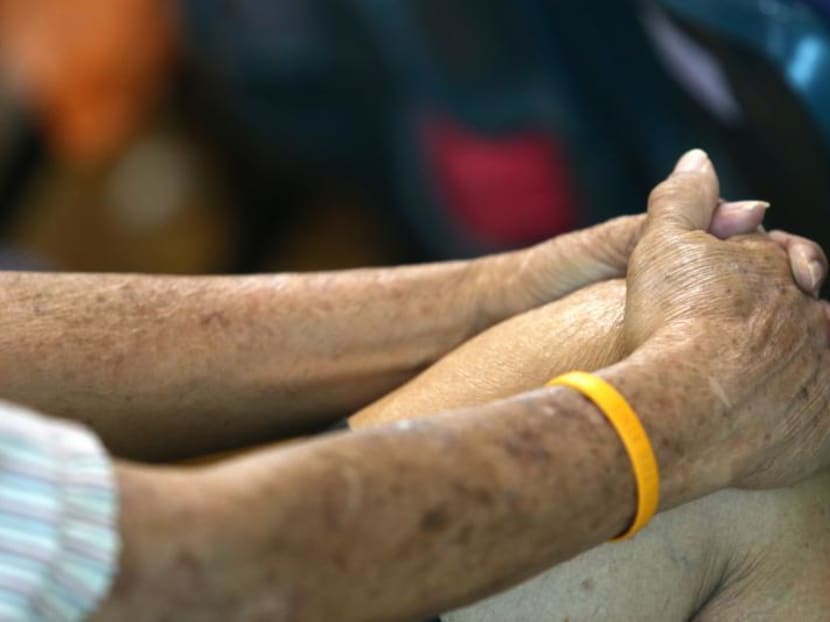Most Singaporeans believe family and government should take care of elderly: Poll
SINGAPORE — Should each generation take care of itself? How should Singapore pay for higher social spending on the elderly?

About 73 per cent of respondents in the telephone survey said the family bears the primary responsibility for taking care of their senior relatives. TODAY file photo
SINGAPORE — Should each generation take care of itself? How should Singapore pay for higher social spending on the elderly?
Results from a poll of 2,000 Singaporeans and permanent residents by the Institute of Policy Studies (IPS) showed divided views on whether each generation should be self-reliant, but a majority of those surveyed said the responsibility of taking care of older people in society lies with one’s family and the Government.
About 73 per cent of respondents in the telephone survey said the family bears the primary responsibility for taking care of their senior relatives, while 7 in 10 (69 per cent) ranked the Government as either first or second in importance for this role.
About 72 per cent ranked the community as either third or last of four choices on delivering such care, which may point to a “belief that the capacity of the community to deliver support for the elderly is insufficient for this sector to bear this responsibility”, said IPS researchers Christopher Gee, Yvonne Arivalagan and Chao Fengqing.
This is also in contrast to the “many helping hands” approach championed by the Government and social service sector here, which encourages non-state actors in the provision of welfare services to the needy.
The IPS survey also found that 41 per cent of respondents — who were more likely to be 60 years old and above — believe “each generation should take care of itself”. A “surprising” proportion of 38 per cent, who were more likely to be younger respondents below 40 years old, disagreed with the statement.
In a similar vein, 41 per cent of respondents — among them a higher proportion in the 50 to 64 age group — disagreed that older generations should set aside assets, such as money and property, as an inheritance for the young.
However, more than two-thirds of younger respondents aged 34 and below, and those aged 40 to 44, agreed or were neutral to the statement.
“We therefore need to ask if the bequest motivation is less salient than commonly assumed, or is longevity risk forcing especially those Singaporeans in the ‘sandwiched’ generation to consider reserving their assets for their own old-age security,” wrote the researchers in a 20-page paper titled Harnessing Singapore’s Longevity Dividends: The Generational Economy, Society and Polity.
Respondents aged 45 to 64 were also more likely to disagree with paying higher taxes, as compared to tapping national reserves, as a means of financing increased social spending on the elderly. On the other hand, they were more likely to agree with using a larger share of net investment returns to fund such spending — this would mean the amount reserved for future generations would decrease.
These results may have arisen because this age group feels the “highest tax burden and... the greatest uncertainty about financing their own post-retirement living expenses”, the researchers wrote.
With an ageing population and a rising old-age dependency ratio, there is a need for more schemes that help Singaporeans pool social risk across the community, said Mr Gee, a senior research fellow at the IPS.
But for this to happen, Singaporeans’ more immediate concerns — especially that of the older generation — need to be addressed. “Then we will be more prepared to consider the needs of other generations,” he said.
“The results show tension between self-reliance or individual responsibility, and one’s sense of community...We need to understand and balance out the tension. It is possible to hold these two at the same time,” he added.
The paper will be discussed at the annual Singapore Perspectives conference on Monday (Jan 22).






